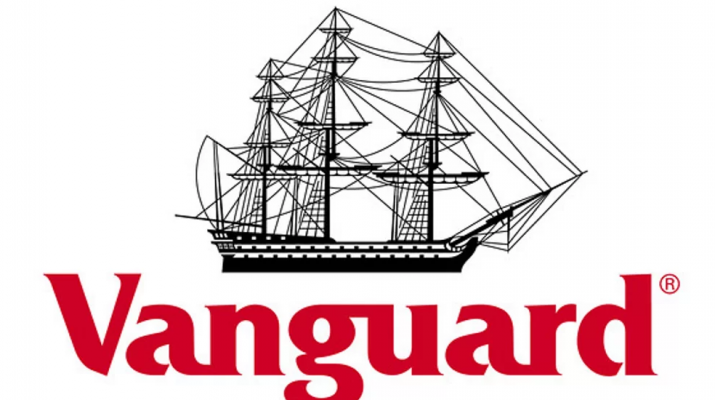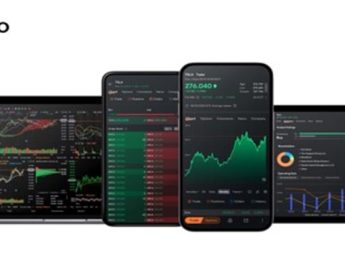How to buy Vanguard ETFs in Australia
The Good
- Wide range of ETFs covering every asset class
- ‘All in one’ Diversified ETF offerings available
- Investor owned structure – not a ‘for profit business’
- Generally the worlds lowest Management Expense Ratios
- 20-30 times cheaper than typical managed funds
Verdict: Vanguard offer a range of ETFs that are easily accessible for Australian investors.
If you know anything about smart investing, then you’ve probably read about index funds, Exchange Traded Funds, and you’ve most certainly heard of Vanguard. This article is for people wanting to learn more about Vanguard ETFs, what options are available and how you can invest into Vanguards ETFs in Australia
CaptainFI is reader supported, which means we may be paid when you visit links to partner or featured sites

Vanguard ETFs in Australia
Vanguard offers a number of ETFs across the world, including Australian based funds such as their Australian stock market fund (ASX:VAS) which tracks the ASX S&P 300 index (top 300 stocks by market capital), as well as cross listed or US domiciled funds such as their American total US stock market fund (ASX:VTS) which tracks the CRSP US total market index (approx 3500 stocks).
In this article we will explain a little more about Vanguard itself, what ETFs they offer across a range of asset classes, which ETFs I personally buy and finally I will provide you with how I buy Vanguard ETFs in Australia using SelfWealth.
Just a word of caution; take the 1, 3 and 5 year return figures with a grain of salt. We all know we have just experienced a market crash recently and this obviously factors into the returns, Vanguard haven’t given me an easily accessible 10 year (or longer) return figure without going into each fund in detail, so if you want this then just head over to their site – we all know you should be investing for a 20-30 year+ timeframe!
A background on the Vanguard group
Vanguard is arguably one of best known providers of Exchange Traded Funds in the world. Founded by legendary investor, John (jack) Bogle in 1975, Vanguard offered the world’s first index tracking mutual fund, and now is one of the largest providers of index fund and exchange traded funds in the world.
Globally, Vanguard now have over (USD) $6.2 Trillion in assets under management (as of January 31, 2020). This is spread across 190 US based funds, and 230 additional globally based funds, with over 30 million individual investors from 170 different countries.
Vanguards average Management expense ratio is 10 basis points, or .1% (a tenth of one percent). This makes them incredibly competitive, especially against dodgy actively managed mutual funds which charge in the order of 2-3% (that is up to 30 times more!)
Which Vanguard ETFs do I buy in Australia
This is a very personal question. The ETFs you choose to buy depends very much on your personal circumstances; your age, risk tolerance, aversion to volatility and your investing goals and timeline. I can’t comment on what you should do or provide you financial advice, but I can give you the example of what I am doing.
Personally, I invest almost entirely in growth assets (Australian and International shares) since I have a very long investment timeline (20+years) and I am not really concerned with volatility (I know it all evens out in the long term, and I can earn more money if I need to). I also am cost conscious, so I want to find the simplest ETF product with the lowest Management Expense Ratio.
Personally, I want access to ETFs which give me Exposure to the following markets;
- Australian Shares
- US shares
- Whole world Shares
To achieve this, for my personal goals and circumstances, I currently invest in the following ETFs in Australia (on the Australian Securities Exchange)
- Betashares Australian top 200 index fund (ASX:A200) MER = .07%
- Vanguard Total US Market (ASX:VTS) MER =.03%
- Vanguard Total world ex US (VAS:VEU) MER = .09%
and I have previously invested in;
- Vanguard Australian shares top 300 (ASX:VAS) MER = .10%
- Blackrock iShares S&P 500 ETF Total US market (ASX:IVV) MER = .04%
If you wanted to simplify your holdings, rather than buying a split of three separate ETFs like I do, instead you might choose to explore Vanguards diversified fund ETFs – just understand the management fees are slightly higher so you are paying for the simplicity / convenience.
If I personally was looking to buy just one of these, I would choose the Vanguard Diversified High Growth Index Fund as it matches my personal circumstances. The problem is it still allocates 10% of the portfolio to bonds and fixed interest and I don’t really want exposure to any bonds or fixed interest at all since I don’t care about volatility and just want the best long term return.
It also has a MER of .27% as opposed to the average MER of .063% that I pay – making it over 4 times as expensive to own, for only a VERY minimal saving of paperwork / admin / re balancing at tax time. I also can’t control the allocation of Australian to International shares, and the VDHG fund includes a hedged international stock fund portion (hedging is a waste of time in the long term as it creates portfolio drag and lower returns).
Click here for a total breakdown of every Vanguard ETF in Australia
How do I buy Vanguard ETFs in Australia
Buying Vanguard ETFs in Australia is incredibly east
Step 1 – Set up your Brokerage account
Setting up your brokerage account isn’t a big deal, and you can really go for any decent low fee CHESS sponsored online brokerage platform. I currently use Pearler. This might take a few days if you haven’t got an account sorted yet. First up you should have a read of these articles;
- How to start investing in Australia
- Check out some broker reviews: Pearler review, Commsec review, Stake Trading review
- Investing in Shares in australia for beginners
- The Captains Library: My list of essential financial reading

Step 2 – select your Vanguard ETFs
This is the tricky part. Check out this list of all Vanguard ETFs in Australia and cross check that against my personal investing strategy to see what I invest in.
Step 3 – Purchase the Vanguard ETFs
Buying Vanguard ETFs in Australia is as simple as logging into your online broker and putting in a buy order for the ETF using the ASX ‘shortcode’ as listed above. I use Pearler to automate my investments, and this link goes to a detailed review showing exactly the steps needed to buy Vanguard ETFs in Australia.
This is optional, but it is good practice to keep a record of your trades for tax purposes – you need to be able to calculate your share cost base if you ever sell for capital gains tax purposes, otherwise the Australian Taxation Office will kick your arse.
I personally use Sharesight since its totally free if you have under ten shares (making it perfect for ETF holders) and it fully generates a complete tax statement for all of my share purchases, sales and dividends I receive.
You can check out the comprehensive review I did on Sharesight Here, where I even got to chat to their content manager and ask him a bunch of curly questions.
Frequently asked questions about Vanguard ETFs in Australia
Answers to frequently asked questions about Vanguard ETFs in Australia
How do I buy Vanguard ETF in Australia?
You can buy Vanguard ETF in Australia either through a conventional online brokerage account, or through the Vanguard Personal Investor portal.
What is the best ETF to invest in Australia?
The best ETF to invest in Australia depends on your personal circumstance, financial goals and investing risk tolerances. Generally speaking, a broad market total stock index fund are some of the best choices for Vanguard ETF investments in Australia.
Can you invest in Vanguard from Australia?
Yes, you can invest in Vanguard from Australia either using Vanguard ETFs listed on the Australian Securities Exchange, or through the Vanguard Personal Investor portal.
What are the best performing Vanguard ETFs?
Some of the best performing Vanguard ETFs have been the total stock market index funds, as well as the ethical investing options.
Which ETFs does Warren Buffet recommend?
Warren Buffet recommends a broad, total stock market index fund ETF.
Is Vanguard good for beginners?
Vanguard Exchange traded funds are perfect for beginners, and those new to investing. They are also well suited to experienced investors seeking the highest long term performance without any of the hassle and stress of active stock picking.
What if Vanguard goes bust?
If Vanguard goes bust, you still own the rights to the underlying shares. You could either chose to be paid out the value of your investments, or have these assets moved to another ETF or investment fund provider.
Conclusion
Its a bit of a whopper but I hope you got something out of this and understand Vanguard ETFs a bit better now.
Remember that Vanguard aren’t the only offer of broadly diversified index tracking ETFs, as was shown in my personal investing strategy where I opted for the Betashares A200 Australian stock fund due to its cheaper management fee over the Vanguard Australian stock fund.
Always do your own research, and shop around for the best deal before making an investment purchase!
If you have anything valuable to contribute to the discussion, let it be known in the comments below. What ETFs are you investing in?
Captain FI is a Retired Pilot who lives in Adelaide, South Australia. He is passionate about Financial Independence and writes about Personal Finance and his journey to reach FI at 29, allowing him to retire at 30.










Thank you for this excellent overview. I’ve been thinking of investing in ETFs for a while but only finally got around to it now that I’m more organised after buying a home recently. I’m up to step 3 and have even gotten SelfWealth. So far so good! I also wanted to say thank you for your other posts which I discovered recently and which I’ve found very helpful.
(Unfortunately you won’t be able to get the referral benefits as I must have signed up on a different link from yours, but I made sure to tell SelfWealth about you!)
Thanks guys 🙂 best of luck with it all! Just stick to the plan and long term you will be amazed at the results
I’ve been reading your posts over and over many times. Many thanks for sharing. I’m 39yo when I started reading about finance and investing. I immediately realised I should have started in my 20s. I’ve wasted almost 20 years of my life by not investing.
I see you’ve achieved FI after 13 years or so. Can you please share how much do I need to invest weekly/monthly to achieve FI after 10-15 years or so?
I’m an entrepreneur and run my own business and can generate stable income. I’ll invest weekly but I’ll also need to have some liquid capital to run my new business ventures and for family.
Thanks captain